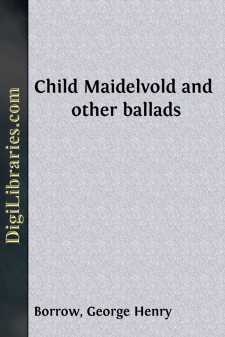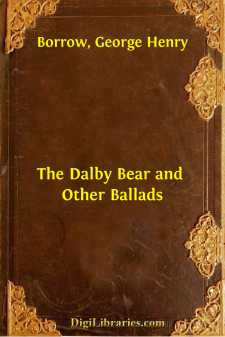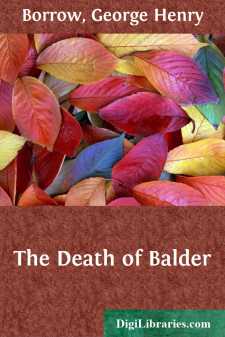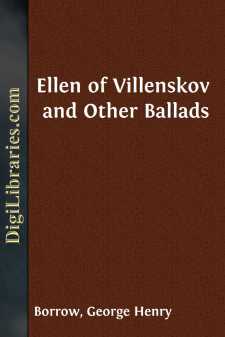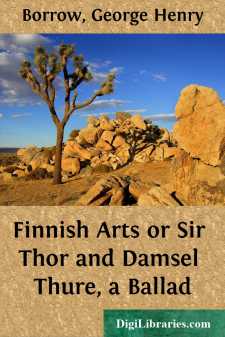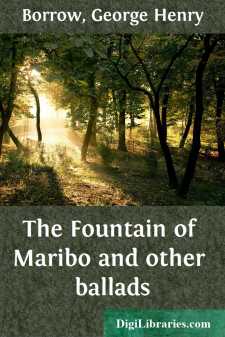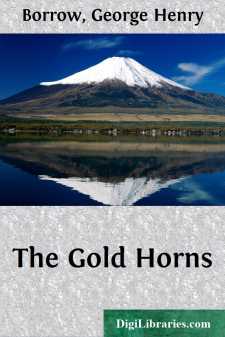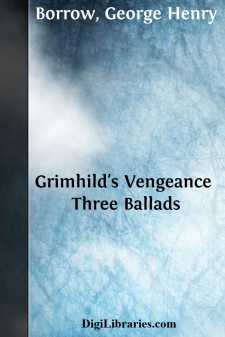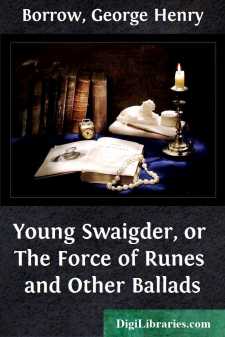Categories
- Antiques & Collectibles 13
- Architecture 36
- Art 48
- Bibles 22
- Biography & Autobiography 813
- Body, Mind & Spirit 142
- Business & Economics 28
- Children's Books 17
- Children's Fiction 14
- Computers 4
- Cooking 94
- Crafts & Hobbies 4
- Drama 346
- Education 46
- Family & Relationships 57
- Fiction 11829
- Games 19
- Gardening 17
- Health & Fitness 34
- History 1377
- House & Home 1
- Humor 147
- Juvenile Fiction 1873
- Juvenile Nonfiction 202
- Language Arts & Disciplines 88
- Law 16
- Literary Collections 686
- Literary Criticism 179
- Mathematics 13
- Medical 41
- Music 40
- Nature 179
- Non-Classifiable 1768
- Performing Arts 7
- Periodicals 1453
- Philosophy 64
- Photography 2
- Poetry 896
- Political Science 203
- Psychology 42
- Reference 154
- Religion 513
- Science 126
- Self-Help 84
- Social Science 81
- Sports & Recreation 34
- Study Aids 3
- Technology & Engineering 59
- Transportation 23
- Travel 463
- True Crime 29
George Henry Borrow
George Henry Borrow (1803-1881) was an English author known for his travel literature and novels, most notably "The Bible in Spain" and "Lavengro." His works often drew on his extensive travels across Europe and his deep interest in the Romani people and their culture. Borrow's unique storytelling combined his personal adventures with rich cultural and linguistic observations, making his writings a significant contribution to 19th-century literature.
Author's Books:
Sort by:
CHILD MAIDELVOLD. The fair Sidselil, of all maidens the flower,With her mother the Queen sat at work in her bower. So hard at the woof the fair Sidselil plies,That out from her bosom, so white, the milk flies. “Now hear thou, O Sidselil, child of my heart,What causes the milk from thy bosom to start?” “O that is not milk, my dear mother, I vow,It is but the mead I was drinking just now.”...
more...
THE DALBY BEAR There goes a bear on Dalby moors,Oxen and horses he devours. The peasants are in deep distressThe laidly bear should them oppress. Their heads together at length they lay,How they the bear might seize and slay. They drove their porkers through the wood,The bear turn’d round as he lay at food. Outspoke as best he could the bear:“What kind of guests approach my lair?” Uprose the bear...
more...
ACT THE FIRST. BALDER and THOR are seated upon stones at some distance from each other. Both are armed—THOR with his hammer, and BALDER with spear and sword. BALDER. Land whose proud and rocky bosomBraves the sky continually! THOR. Where should strength and valour blossom,Land of rocks, if not in thee? BALDER. Odin’s shafts of ruddy levinBack from thy hard sides are driven;Never sun thy...
more...
ELLEN OF VILLENSKOV. There lies a wold in Vester Haf, There builds a boor his hold;And thither he carries hawk and hound, He’ll stay through winter’s cold. He takes with him both hound and cock, He means there long to stay;The wild deer in the wood that are For his arrival pay. He hews the oak and poplar tall, He fells the good beech tree;Then fill’d was the laidly Trold with...
more...
FINNISH ARTSORSIR THOR AND DAMSEL THURE. Sir Thor was a knight of prowess tried,The son of a king he was beside. He was a knight excelled by none,At home such deeds of might he’d done. And not alone in his native home,But manhood had he displayed at Rome. He faithfully served the emperor,And hatred to all his foes he bore. King of Norroway was his sire,His fame spreads over the world entire. He was a...
more...
THE FOUNTAIN OF MARIBOorTHE QUEEN AND THE ALGREVE The Algreve he his bugle wound The long night all—The Queen in bower heard the sound, I’m passion’s thrall. The Queen her little page address’d, The long night all—“To come to me the Greve request,” I’m passion’s thrall. He came, before the board stood he, The long night all—“Wherefore, O Queen, has sent for...
more...
THE GIANT OF BERNAND ORM UNGERSWAYNE It was the lofty Jutt of Bern O’er all the walls he grew;He was mad and ne’er at rest, To tame him no one knew. He was mad and ne’er at rest, No lord could hold him in;If he had long in Denmark stayed Much damage there had been. It was the lofty Jutt of Bern Bound to his side his glaive,And away to the monarch’s house he rode With the...
more...
INTRODUCTION Early in the present year Mr. Thos. J. Wise discovered among the miscellaneous MSS. of Borrow a fragment which proved to be part of a version of Oehlenschläger’s Gold Horns. His attention being drawn to the fact, hitherto unknown, that Borrow had translated this famous poem, he sought for, and presently found, a complete MS. of the poem, and from this copy the present text has been...
more...
INTRODUCTION Borrow and the Kjæmpeviser. The modern poetical literature of Denmark opens with a collection of epical and lyrical poems from the Middle Ages, which are loosely connected under the title of Kjæmpeviser or Heroic Ballads. Of these the latest scholarship recognises nearly 500, but in the time of Borrow the number did not much exceed 200. These ballads deal with half-historic events,...
more...
YOUNG SWAIGDERorTHE FORCE OF RUNES It was the young Swaigder, With the little ball he played;The ball flew into the Damsel’s lap, And pale her cheeks it made. The ball flew into the Damsel’s bower. He went of it in quest;Before he out of the bower came, Much care had filled his breast! “The ball, the ball thou shouldst not fling, Shouldst cast it not at me;There sits a maid in...
more...


